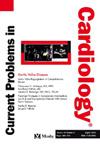Changing the triglyceride diagnostic criteria of metabolic syndrome for African Americans
IF 3.3
3区 医学
Q2 CARDIAC & CARDIOVASCULAR SYSTEMS
引用次数: 0
Abstract
The incidence and prevalence of metabolic syndrome has been increasing globally with no signs of abating. Individuals with metabolic syndrome are at increased risk of multiple comorbidities, including cardiovascular disease and type 2 diabetes mellitus. Studies show that there is a paradoxical relationship in African Americans however, as they experience a higher rate of cardiovascular disease and type 2 diabetes mellitus despite having a lower prevalence of metabolic syndrome when compared to whites. The triglyceride paradox, an unusual phenomenon in which African Americans consistently express a more normal triglyceride status even when having conditions known to be characterized by high triglyceride levels, is believed to account for this paradoxical relationship. In this manuscript, we review the history and pathophysiology of metabolic syndrome while also discussing the importance of the triglyceride paradox in explaining the inverse relationship that exists between metabolic syndrome, cardiovascular disease, and type 2 diabetes mellitus in African Americans. In addition, we advocate for decreasing the triglyceride cutoff value when diagnosing metabolic syndrome in this population to more precisely determine who is at risk for developing type 2 diabetes mellitus and cardiovascular disease.
改变非裔美国人代谢综合征的甘油三酯诊断标准
在全球范围内,代谢综合征的发病率和流行率一直在上升,没有减弱的迹象。代谢综合征患者患多种合并症的风险增加,包括心血管疾病和2型糖尿病。研究表明,与白人相比,非裔美国人患心血管疾病和2型糖尿病的比例更高,但代谢综合征的患病率较低。甘油三酯悖论是一种不寻常的现象,即非洲裔美国人即使患有已知的高甘油三酯水平的疾病,也始终表现出更正常的甘油三酯状态,这被认为是解释这种矛盾关系的原因。在这篇文章中,我们回顾了代谢综合征的历史和病理生理学,同时也讨论了甘油三酯悖论在解释非裔美国人代谢综合征、心血管疾病和2型糖尿病之间存在的反比关系中的重要性。此外,我们提倡在诊断代谢综合征时降低甘油三酯临界值,以更准确地确定谁有患2型糖尿病和心血管疾病的风险。
本文章由计算机程序翻译,如有差异,请以英文原文为准。
求助全文
约1分钟内获得全文
求助全文
来源期刊

Current Problems in Cardiology
医学-心血管系统
CiteScore
4.80
自引率
2.40%
发文量
392
审稿时长
6 days
期刊介绍:
Under the editorial leadership of noted cardiologist Dr. Hector O. Ventura, Current Problems in Cardiology provides focused, comprehensive coverage of important clinical topics in cardiology. Each monthly issues, addresses a selected clinical problem or condition, including pathophysiology, invasive and noninvasive diagnosis, drug therapy, surgical management, and rehabilitation; or explores the clinical applications of a diagnostic modality or a particular category of drugs. Critical commentary from the distinguished editorial board accompanies each monograph, providing readers with additional insights. An extensive bibliography in each issue saves hours of library research.
 求助内容:
求助内容: 应助结果提醒方式:
应助结果提醒方式:


